
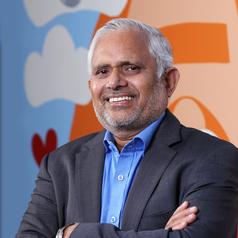
Muhammad Morshed
Clinical Professor, Department of Pathology and Laboratory Medicine, University of British Columbia
Dr. Morshed is a Clinical Professor in the Department of Pathology and Laboratory Medicine at the University of British Columbia and also a public health clinical microbiologist at the BCCDC Public Health Laboratory in Vancouver, British Columbia, Vancouver, Canada, where he is Head of the Zoonotic and Emerging Pathogens section since 1997. His area of interest is vector-borne and zoonotic diseases with special interest in spirochaetal disease such as Lyme disease and syphilis. He did his MSc in Microbiology from Dhaka University, Bangladesh and PhD from the Yamaguchi University School of Medicine, Japan. He has also added significantly to the general knowledge and understanding of these diseases with more than 150 refereed scientific publications; several book chapters, and open-editorial in newspapers . On his recognition, Dr. Morshed received an Excellence in Clinical Services Award from UBC’s Department of Pathology & Laboratory Medicine in 2016, RBC Top 25 Canadian Immigrant Awards in 2017; Distinguished Microbiologists Award by the Canadian College of Microbiologists in 2019; elected as an Expatriate Fellow of the Bangladesh Academic of Sciences in 2020 end Excellence in undergraduate and Graduate education award from UBC’s Department of Pathology & Laboratory Medicine this year (2023).
Less ![]()
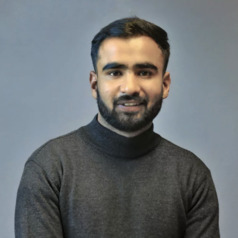
Muhammad Muddasar
PhD candidate, School of Engineering, University of Limerick
I am a doctoral researcher at the School of Engineering, Bernal Institute, University of Limerick, specialising in the development of energy production and storage devices through ionic thermoelectric membranes and carbon-based materials from lignocellulosic biomass. With a strong record of securing competitive scholarships, including the UOL Academic Excellence Scholarship, ICT Endowment Fund, IsDB Research Scholarship, and NXTGENWOOD Ph.D. funding, I have also published extensively in peer-reviewed journals. Recently, I shared my research in just a three-minute presentation and won the Editor's Choice Award in the international Vitae 3MT (Three Minute Thesis) competition. This research provides a vision of a future where we can turn what was once considered waste into valuable resources.
Less ![]()
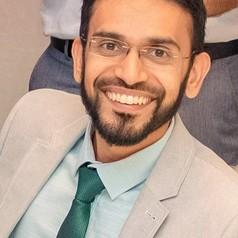
Muhammad Nakhooda
Associate professor, Cape Peninsula University of Technology
I hold a PhD in plant biotechnology from the University of KwaZulu-Natal, and currently hold an Associate Professor position at the Cape Peninsula University of Technology, in Cape Town, South Africa. My research is in biotechnology for conservation and food security, as well as in learning, teaching and curriculum development in higher education. I am particularly interested in the applications of artificial intelligence in advancing science and education for social justice.
Less ![]()
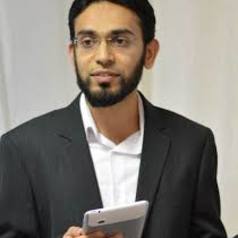
Muhammad Nakhooda
Senior Lecturer in Biotechnology, Cape Peninsula University of Technology
I hold a PhD in Plant Biotechnology from UKZN, where I served as a lecturer from 2009 to 2013. I then joined the Cape Peninsula University of Technology as a Senior Lecturer in the Biotechnology Department. I lecture in Biochemistry, Microbiology and Immunology. My current research interests lie in the improvement of commercially-important crop such as Eucalyptus and sugarcane, through various biotech interventions, as well as in the development of in vitro protocols for rare and/or medicinal plants.
Less ![]()
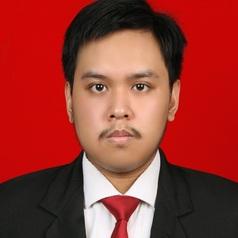
Muhammad Rifqi Daneswara
Research Fellow, Indonesian Institute of Advanced International Studies (INADIS)
Lulus Ilmu Hubungan Internasional Universitas Indonesia 2022
Research Intern di CSIS Indonesia April 2022-Agustus 2022.
INADIS Research Fellow September 2022
Less ![]()
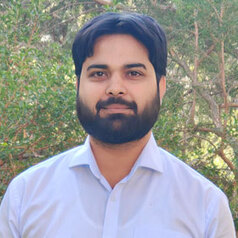
Muhammad Rizwan Azhar
Lecturer, Edith Cowan University
Dr Muhammad is a chemical engineer with a diverse background in materials engineering and nanotechnology.
He completed his PhD Chemical Engineering at Curtin University in 2018 on “Synthesis of Nanomaterials and their Integration in Wastewater Treatment Processes”.
Less ![]()
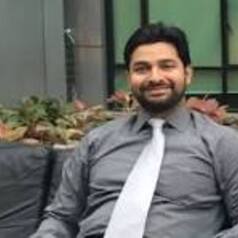
Muhammad Umair Khan
Lecturer in Clinical Pharmacy, Aston University
I am currently working as a Lecturer in Clinical Pharmacy at Aston University. Before joining Aston, I completed my PhD from The University of Sydney, Australia. My research focuses on medicine optimisation. My work in this area has made a significant impact across various clinical domains such as ADHD, depression, diabetes, and polio.
Currently, I am investigating how we can improve the use of ADHD medicines and the role of community pharmacies in supporting children with ADHD and their families. I have published several research articles in this area, particularly on adherence to ADHD medications and the decision-making that goes around the use of ADHD medications.
A complete list of my research articles is available at: https://orcid.org/0009-0005-1284-5929
Less ![]()
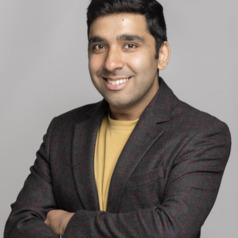
Muhammad Haaris Tiwana
Research Fellow, Faculty of Health Sciences, Simon Fraser University
I and early career researcher in the field of population and public health. My research focuses on incorporating equity-based and intersectional approaches to pandemic preparedness, disparities concerning the healthcare workforce, and vaccine service delivery among others. I am particularly interested in research that informs policy, with a personal interest in issues regarding equity, diversity and inclusion. With a combined clinical and public health background, I hope to use research to help stakeholders understand health issues, design appropriate strategies, and monitor policy implementation.
I hold a Bachelor of Dental Surgery from Pakistan and a Master of Public Health from Western University, Canada
Less ![]()
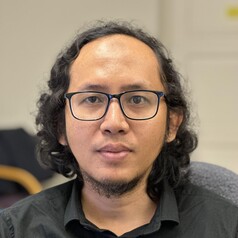
Muhammad Rifqi Damm
PhD Student, University of Gothenburg
Muhammad R. Damm merupakan research fellow pada Asia Research Centre, Universitas Indonesia (ARC UI), dan dosen tetap pada Fakultas Bahasa dan Seni, Universitas Indraprasta PGRI, Jakarta (FBS Unindra). Ia menyelesaikan pendidikan sarjana Ilmu Filsafat dan magister Antropologi di Universitas Indonesia. Saat ini tengah menempuh pendidikan doktoral pada bidang Antropologi Sosial di University of Gothenburg, Swedia.
Less ![]()
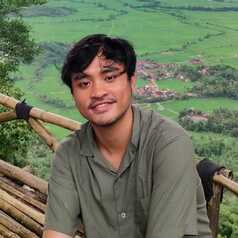
Muhammad Soufi Cahya Gemilang
Research Officer, Resilience Development Initiative (RDI)
Gemilang is a research officer at the Children, Social Welfare, and Health (CSWH) cluster at the Resilience Development Initiative. He is interested in researching coastal community resilience, post-disaster reconstruction, and climate change adaptation. Prior to joining RDI, he has over 3 years of experience as a junior anthropology researcher working on baseline research, monitoring and evaluation projects, academic research, and more.
Less ![]()
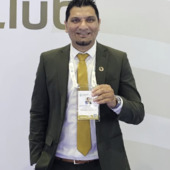
Muhammad Wakil Shahzad
Associate Professor and Head of Subject, Mechanical and Construction Engineering, Northumbria University, Newcastle
Less ![]()
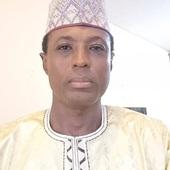
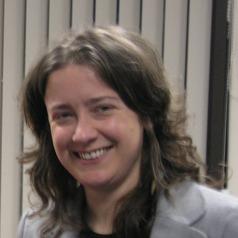
Muireann O'Cinneide
Lecturer in English, University of Galway
Muireann O’Cinneide is a graduate of University College Cork (BA 1998, English & Latin) and the University of Oxford (Lady Margaret Hall: M.Phil. in Victorian Literature 2000, D.Phil. 2003). She teaches literature of the eighteenth, nineteenth, and twentieth centuries, giving undergraduate courses in Victorian literature, literature of the Romantic period, and eighteenth-century novels and poetry. At graduate level she is Course Director for the MA in Culture and Colonialism. Her main research interests are in women’s writing, politics, and colonial and postcolonial literature and theory (especially travel writing). She has published a monograph on aristocratic women’s writing in the Victorian period, and she is currently working on nineteenth-century travel writing and conflict narratives.
Less ![]()
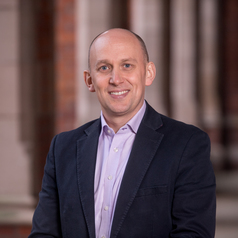
Muiris MacCarthaigh
Professor of Politics and Public Policy, Queen's University Belfast
My research engages with a variety of debates within and between political science, public sector governance and public policy. I am particularly interested in the role played by administrative systems (and the organisations within them) in translating political preferences into public policy outcomes.
Current research projects are concerned with:
o International Public Policy: I am the QUB lead on a £2m Economic and Social Research Council (ESRC) collaboration with University College London, Cardiff University, the University of Oxford, the University of Auckland and a number of think-tanks which has created an International Public Policy Observatory to provide policy-makers with access to resources, evidence and analysis of global policy responses to the COVID-19 pandemic. I am also Programme Director of the MSc in International Public Policy at QUB.
o Technology, Government and Society. I am Co-Director (with Professor Margaret Topping) of the H2020 Marie Skłodowska-Curie Doctoral Training Programme titled Collaboration in Training and Innovation for Growing, Evolving and Networked Societies (CITI-GENS) for 2020-25. I am also Co-Investigator in the Leverhulme Interdisciplinary Network on Cybersecurity and Society (LINCS) Project at QUB (2015-21). My work aligns with the research strand on Cyberspace, Privacy and Data Protection. I currently supervise a LINCS PhD student (Emma McAllister) working on human-data interaction in the education sector, with a second LINCS PhD student (Connel McKeown) being awarded his degree in 2020 for his work on open data and accountability. From 2021, I will be Co-Investigator with the successor LINAS Doctoral Training Programme. I also supervise a PhD student (Humaid Al Kaabi) working on the use of anti-corruption technology in government.
o Public Accountability and Crisis:I am a Co-Investigator on the ESRC funded project ‘Apologies Abuses and Dealing with the Past’ (2016-20). This comparative project explores apologies linked to harms arising from the conflict in Ireland, institutional child abuse and the fall-out from the 2008 financial crisis. My work in this project concerns issues relating to organisational reputation and accountability, specifically in relation to corporate institutions.
o Evolution and Reform of State Administrations: For the past several years I have been involved in research on the autonomy, accountability, rationalisation and re-organisation of public sector agencies or ‘quangos’. This involves ongoing collaboration with research teams across Europe as part of a European Science Foundation funded network (COST-CRIPO). With colleagues from this network I have recently begun to examine longitudinal aspects of state bureaucracy using time-series datasets on public organisation. This work builds on my post-doctoral research in 2009-10 at the UCD Geary Institute with Prof Niamh Hardiman and Prof Colin Scott, which resulted in the production of the Irish State Administration Database (www.isad.ie). I was nominated to the Steering Committee of the European Group for Public Administration in 2019, the leading academic network for public administration and public policy research in Europe. I currently supervise a PhD student (Nafja Al Kuwari) working on changes to state governance in Qatar.
o How States Retrench in Times of Crisis: This ongoing research is concerned with the ongoing outworking of the 2008 economic crisis for the politics and organisational shape of the state. It links to collaborative work which emerged from the European Commission FP7 COCOPS initiative 'The financial crisis in the public sector' (Prof. Tiina Randma-Liiv, Tallinn, and Prof. Walter Kickert, Rotterdam) and the Building State Capacity Project at the Geary Institute, UCD (Prof Niamh Hardiman). As part of this work, I was awarded a Research Fellowship (2014-16) to examine the creation and reform efforts of the Irish Department (Ministry) of Public Expenditure and Reform. This was published in 2017 as a monograph titled Public Sector Reform in Ireland: Countering Crisis (Palgrave).
o Irish Government and Politics: Since publishing my PhD thesis concerning parliamentary accountability in Ireland in 2005, I have authored and edited a number of textbooks on Irish government and politics and continue to teach on these topics. More recently, in my role as President of the Political Studies Association of Ireland (2016-19) and co-chair (with Conor Little, University of Limerick) of the PSAI Specialist Group on Public Policy (2020-), I have sought to advance the Irish political science community and develop its profile nationally and internationally.
As well as researching, teaching and supervising in these areas, I have published work and retain ongoing interests in the study of political-administrative relationships, public sector reform, organisational theory and parliaments.
Less ![]()
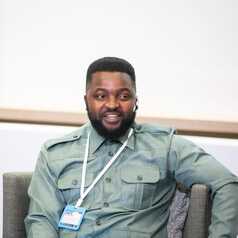
Mukovhe Masutha
Senior Research Fellow, University of Johannesburg
Dr Masutha has worked as a Policy and Strategy Analyst at Divisions of Economic intelligence in Local and National government departments.
He currently holds the positions of Senior Research Fellow in the Faculty of Science (UJ), Special Advisor in the Ministry in the Presidency on Youth Policy, and Head of Research, Innovation and Partnerships at the Centre for Emerging Researchers, also based at UJ.
Dr Masutha holds a BA in Economic Geography, BSc Honours in Cities Planning and Development from Wits University, an MSC in Economic Geography and SMMEs Incubation from UJ and PhD in Policy and Management from the University of Bath (UK).
Dr Masutha serves on a number of current and former local and international advisory boards:
Chairman of the Advisory Committee of the Ministry of Higher Education, Science and Technology’s Nurturing Future Scholars Programme (NSP) (South Africa)
Member of the Chilean Government’s International Panel of Experts on Free Education Policies and Public Funding Strategies of Higher Education
Transnational Advisory Committee of the Black Health Matters Research Project (University of Toronto, Canada)
South African Government’s Presidential Youth Working Group (South Africa)
Member of the Technical Committee of the Inter-Ministerial Committee on Higher Education Funding (South Africa)
Academic Advisory Committee of the Climate Action Network for International Educators (CANIE, Australia)
Less ![]()
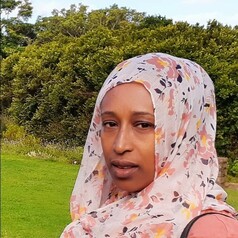
Muna Shifa
Senior Researcher in Development Economics, University of Cape Town
I am a senior research officer at the Southern Africa Labour and Development Research Unit (SALDRU). My research focuses on land tenure systems and rural livelihoods, urbanization and development, social cohesion and inequality, and the analysis of poverty and inequality. I teach postgraduate-level courses on complex surveys and measuring poverty and inequality in the School of Economics at the University of Cape Town.
Less ![]()
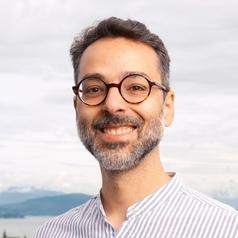
Munir Squires
Assistant Professor, Vancouver School of Economics, University of British Columbia
Munir Squires is an assistant professor in the Vancouver School of Economics, University of British Columbia. His main research area is development economics and economic history, with a focus on kinship, culture, and the effects of cousin marriage. He obtained his PhD from the London School of Economics.
Less ![]()
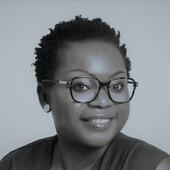
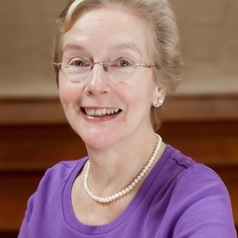
Muriel Porter
Adjunct Faculty Member, Trinity College Theological School, University of Divinity
I am a journalist by profession and a historian by academic qualification. Currently a freelance journalist and author, I taught journalism as a senior academic at RMIT University until 2005. My area of expertise is commentary on contemporary religious issues, particularly pertaining to women, gay issues, marriage, etc.
Less ![]()
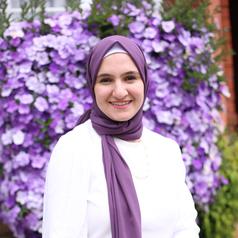
Murooj Yousef
PhD Candidate, Griffith University
Murooj Yousef is a Research Fellow at Social Marketing @ Griffith passionate about behaviour change and the role of emotions in social advertisements. She is currently working with Blurred Minds, a gamified alcohol, vaping and drugs education initiative for Australian high schools. Murooj helped in engaging over 100 schools with different Blurred Minds programs and resources.
Murooj's research aims to increase understanding of the role of emotions in social advertising. Murooj helps social marketers to produce more effective messages though different digital and social media channels. Murooj’s research follows the consumer journey from exposure to behavioural action, looking at how emotions drive actions online and offline. She helped in evaluating many campaigns targeted at different behaviours including reducing drink driving among young adults, increasing quality donations for Australian charities, encouraging smoking cessation through different packaging strategies and increasing the uptake of COVID-19 vaccination.
Less ![]()
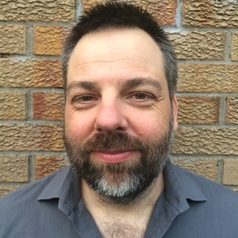
Murray Leith
Professor of Political Science, University of the West of Scotland
Murray Leith has lectured at universities in Scotland and the United States. He has published on several aspects of Scottish and British politics, Scottish nationalism, national identity, the Scottish Diaspora, independence and Union. He is usually working on research involving nationalism and national identity in Scotland, and is currently researching around the Scottish Diaspora, as well as other aspects of contemporary Scottish politics and society.
His most recent projects include him being part of a team undertaking a Scotland wide survey of support to older UK Veterans aged 65+, creating an online game considering national and European identity, and an number of research projects involving consideration of the Scottish diaspora and the connection to Scottish politics and society.
In 2020, Manchester University Press published his most recent book 'Scotland: The New State of an Old Nationa' a co-authored, wider look at contemporary Scotland. His most recent articles consider the Scottish Diaspora, and issues around Scottish identity, and return migration to Scotland, post Brexit.
He is the proud parent of a grown up daughter, and a slightly younger potted plant.
Less ![]()
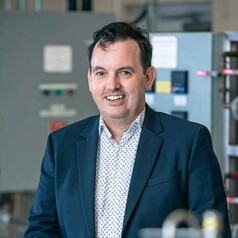
Murray Shearer
Murray Shearer is a hydrogen and alternative energy expert, with a background in working on alternative energy in oil and gas companies
Less ![]()
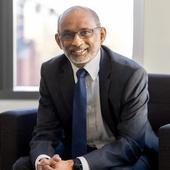
Murugan Anandarajan
Professor of Decision Sciences and Management Information Systems, Drexel University
Less ![]()
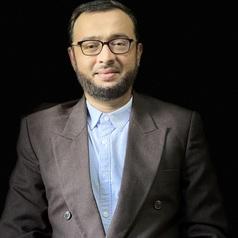
Musa Alkadzim
Mahasiswa, Universitas Islam Internasional Indonesia (UIII)
Here is my Google Scholar profile
https://scholar.google.com/citations?view_op=list_works&hl=id&user=d8-qUlsAAAAJ
Less ![]()
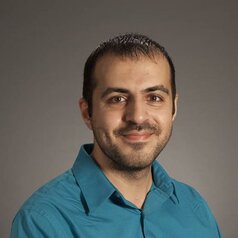
Mustafa Aksoy
Assistant Professor of Electrical & Computer Engineering, University at Albany, State University of New York
Mustafa Aksoy joined the faculty of the Department of Electrical and Computer Engineering in Fall 2017. Dr. Aksoy received his Ph.D. in Electrical and Computer Engineering in 2015 from the Ohio State University, where he worked as a graduate research associate at the ElectroScience Laboratory. Prior to joining the University at Albany, Dr. Aksoy was a post-doctoral research associate at the University of Maryland Baltimore County and NASA Goddard Space Flight Center. His research interests include microwave passive remote sensing of Earth and Space and electromagnetic theory. Dr. Aksoy has been the sole-investigator of several projects supported by NASA, NSF and ORAU, published more than 60 peer-reviewed journal and conference articles, and received NSF Faculty Early Career Development Program, NASA Space Technology Mission Directorate Early Career Faculty, NASA Robert H. Goddard Exceptional Achievement for Engineering, and ORAU Ralph E. Powe Junior Faculty Enhancement awards.
Dr. Aksoy is a senior member of the Institute of Electrical and Electronics Engineers (IEEE), the IEEE Geoscience and Remote Sensing Society (GRSS), and the IEEE Geoscience and Remote Sensing Society’s Frequency Allocations in Remote Sensing (FARS) Committee.
Less ![]()
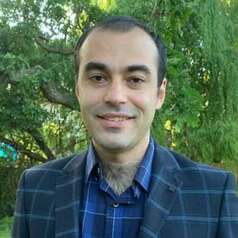
Mustafa Kirisci
Assistant Professor of Homeland Security, DeSales University
Dr Mustafa Kirisci is an Assistant Professor of Homeland Security at DeSales University. His research interests are terrorism, civil conflict, interstate conflict, and civil-military relations. His papers appear in Government and Opposition, Civil Wars, Terrorism and Political Violence, International Negotiation, Dynamics of Asymmetric Conflict, Critical Studies on Terrorism, British Journal of Middle Eastern Studies, Inkstick Media, and National Interest.
Less ![]()
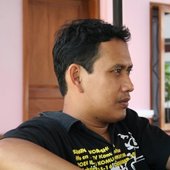
Muzayin Nazaruddin
Dosen Program Studi Ilmu Komunikasi, Universitas Islam Indonesia (UII) Yogyakarta
Less ![]()
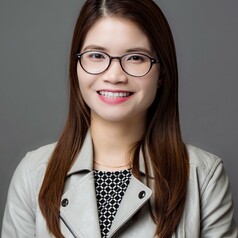
My Nguyen
Senior Lecturer in Finance, RMIT University
My Nguyen is a Senior Lecturer in Finance who specialises in empirical corporate finance, banking, sustainable finance, and digital financial services.
Less ![]()
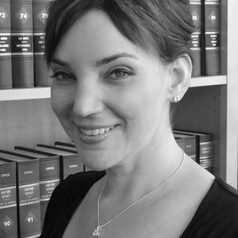
Mya Poe
Associate Professor of English, Northeastern University
Mya Poe’s research focuses on writing assessment and writing development with particular attention to equity and fairness. She is the co-author of Learning to Communicate in Science and Engineering (CCCC Advancement of Knowledge Award, 2012), co-editor of Race and Writing Assessment (CCCC Outstanding Book of the Year, 2014), and co-editor of Writing Assessment, Social Justice, and the Advancement of Opportunity (2019). Her scholarship has appeared in journals such as College Composition and Communication, The Journal of Business and Technical Communication, The Journal of Writing Assessment, and Assessing Writing. She has also guest-edited special issues of Research in the Teaching of English and College English dedicated to issues of social justice, diversity, and writing assessment. She is series co-editor of the Oxford Brief Guides to Writing in the Disciplines. Her research has received funding from the National Science Foundation, Northeastern College of Humanities and Social Sciences, College Composition and Communication, MIT School of Humanities and Social Sciences, and the Penn State Institute for the Arts and Humanities.
Her teaching and service have been recognized with the Northeastern University Teaching Excellence Award, the Northeastern College of Social Sciences and Humanities Outstanding Teaching Award, and the MIT Infinite Mile Award for Continued Outstanding Service and Innovative Teaching. She is a board member of the Journal of Writing Analytics, Assessing Writing, Journal of Writing Assessment, and Research in the Teaching of English. She has served on the NCTE College Steering Committee and on the CCCC Nominating Committee. She has chaired the NCTE Ohmann Award committee, the CCCC Research Impact Committee, and CCCC Outstanding Book Ward Committee. She is currently on the Task Force to revise the CCCCC Assessment Principles.
Less ![]()
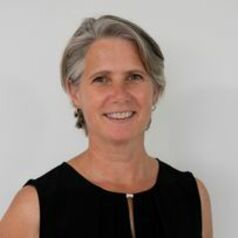
Myfanwy Maple
Professor of Social Work, University of New England
Myfanwy Maple is Professor of Social Work and Chair of Research in the School of Health at the University of New England in Armidale, New South Wales, Australia. She is Director of Manna Institute, a Commonwealth funded, Regional University Network virtual research and training institute focused on mental health and wellbeing in regional communities.
For two decades, Professor Maple’s research has focused on trauma and loss, with a particular emphasis on understanding risk and resilience following exposure to suicide. Her work has made a significant contribution to understanding vulnerability and resilience related to suicide exposure and she is currently working on the development of interventions and evaluating supports to reduce adverse outcomes related to suicide. Professor Maple’s work further extends to examining risk and resilience among vulnerable young people who have experienced significant trauma, are disengaged from society, and have declining mental health primarily through the Social Work In Schools project. Dr Maple’s focus remains on authentically including the voices of those with lived experience to better inform policy, research and practice developments.
Professor Maple is a Director on the Board of batyr. She is Deputy Chair of the National Suicide Prevention Research Fund Advisory Committee, and a past elected Director of the Board of Suicide Prevention Australia. In late 2019, Professor Maple was invited to be a member of the Prime Ministers Suicide Prevention Advisors Expert Advisory Group. She has been co-chair of the International Association for Suicide Prevention Postvention and Bereavement Special Interest Group. Professor Maple is a graduate of the Australian Institute of Company Directors.
Less ![]()

Mykaell Riley
Principal Investigator, Black Music Research Unit, University of Westminster
Mykaell S. Riley began his career in the late seventies as a performer with pioneering Reggae outfit 'Steel Pulse' who went on to achieve a Grammy. In the nineties he founded the Reggae Philharmonic Orchestra, who represent the most visibly black/multicultural collection of classically trained musicians in the UK.
He has been a professional writer/producer and performer for over 25 years. Over this period he has achieved Silver, Gold and Platinum awards and contributed to four number 1 singles and seven number 1 albums via his production and writing work.He works as a music industry consultant and a content developer for music related educational programmes. He is a subject specialist (music/production) for the Open University, University of West London validation panels. and is a fellow of the Royal Society of the Arts.
His current research involves developing the subject area of British black music, and creating a national archive of related content.
He is the director of the Black Music Research Unit and his key objectives are to promote workshops, seminars, guest lectures and collaborative research projects, as well as to encourage networking of media scholars, practitioners, policy-makers and students of Caribbean music. His first AHRC project, entitled 'Bass Culture', aims to highlight Black British popular music heritage.
Additional ongoing projects include the development of a large scale exhibition and film festival on the impact and legacy of Black British Music. Past research includes: The Value of Jazz in Britain Report - the first national mapping of UK jazz - The creation of BBMX an interactive educational DVD exploring the history of black music in the UK - Dub Sweat & Tears, a major photographic exhibition, reflecting 60yrs of Black British music.
Less ![]()
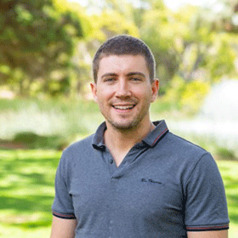
Myles Murphy
Postdoctoral research fellow, Physiotherapy, Edith Cowan University
Myles is a postdoctoral clinician researcher within the Edith Cowan University Nutrition and Health Innovation Research Institute. Myles’ research involves investigating the drivers of pain and impairment in people with lower-limb musculoskeletal injury and disability as well as novel neuroscience interventions to address these impairments.
Background
Dr. Murphy is an Australian Physiotherapy Association titled Sport and Exercise Physiotherapist. Dr. Murphy has worked clinically as a physiotherapist for variety of elite sporting teams, including the Western Australian Cricket Association. While also working clinically, Dr. Murphy completed his PhD part-time at The University of Notre Dame Australia investigating the different mechanisms related to pain and dysfunction in people with lower-limb tendinopathy.
Professional Associations
Sports Medicine Australia, Western Australia Branch - Chairperson
Sports Medicine Australia - Member
Australian Physiotherapy Association - Member
Sports Physiotherapy Australia - Member
Australian College of Physiotherapists - Member
Awards and Recognition
2022 - Australian Sports Medicine Federation Fellowship
2020 - Australian Physiotherapy Association Emerging Researcher (WA Branch)
2016 - Australian Physiotherapy Association Titled Sport and Exercise Physiotherapist
Research Areas and Interests
Myles’ research involves investigating the drivers of pain and impairment in people with lower-limb musculoskeletal injury and disability as well as novel neuroscience interventions to address these impairments. Myles’ has a research interest in tendon injuries, especially the Achilles tendon, and according to ExpertScape is within the top 0.3% of published ‘tendinopathy’ researchers worldwide.
Less ![]()
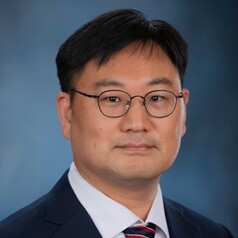
Myoung-Gi Chon
Associate Professor of Communication and Journalism, Auburn University
Myoung-Gi Chon, Ph.D., serves as an associate professor and the graduate program officer (GPO) in the School of Communication and Journalism at Auburn University. He holds the position of associated editor at Asian Journal of Public Relations (AJPR). Previously, he was a co-advisor for the Public Relations Student Society of America (PRSSA), and since 2019, he has been an advisor for the Korean Student Association (KSA) at Auburn University. Moreover, he actively contributes as one of the board members of Korea Corner, an organization dedicated to fostering mutual understanding and bridging the gap between the Korean community and non-Korean communities.
Chon's primary research interests center around risk-crisis management, health communication, and science communication, particularly concerning infectious diseases and environmental issues. His research has evolved to explore communicative behaviors of the public, addressing social and political challenges in the digital age. Throughout his academic journey, Dr. Chon, along with co-authors, has contributed to the development of various measurements, including social media activism, issues-crisis principles (RAPIDS) and allegiant communication behavior (ACB). Recently, he has extended his research interests to include the application of public relations theories in public diplomacy. Moreover, as a committee member in Auburn University's AI@AU initiative, his ongoing research centers on applying AI in public relations education and addressing health-science communication issues.
Less ![]()
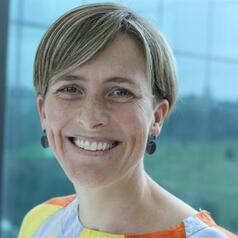
Myra Hardy
Postdoctoral Researcher, Infection, Immunity and Global Health, Murdoch Children's Research Institute
Dr Myra Hardy is a Paediatric Infectious Diseases Physician with a strong interest in global health that stems from her early research evaluating the burden of rheumatic heart disease in school children in Tonga. During her paediatric training, she has worked in Melbourne, Darwin, Solomon Islands and Canada. She has recently completed her PhD based in Fiji investigating the safety and efficacy of Ivermectin, Diethylcarbamazine, and Albendazole for lymphatic filariasis control and the non-inferiority of one-dose versus two-dose Ivermectin-based Mass drug administration (MDA) for the community control of scabies.
Myra is currently a postdoctoral researcher in the Tropical Diseases group, Infection, Immunity and Global Health research area at Murdoch Children’s Research Institute. Her ongoing research focuses on the acceptability of ivermectin, diethylcarbamazine and albendazole, the impact on soil-transmitted helminths and further evaluation of the efficacy of treatments for lymphatic filariasis in Fiji.
Less ![]()
- Market Data























